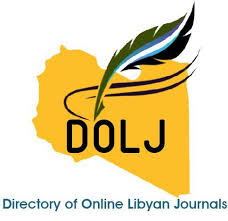COVID-19 vaccine acceptance among Libyan health care workers: a cross-sectional study in western Libya
DOI:
https://doi.org/10.54361/ljmr.17-10Keywords:
vaccine, Libya, acceptance, healthcare workersAbstract
Background: Numerous rumors and facts regarding the Corona virus vaccines have been circulating since their introduction, and these have undoubtedly affected people, including health sector workers. A significant portion of consumers refused the COVID-19 immunization as a result of false information regarding the vaccine being circulated on social media. Aims: This study aimed to evaluate the acceptance rate of COVID-19 vaccination among Libyan health sector workers. Method: A cross-sectional study was conducted among 200 participants employed in both the public and private health care sectors in the north-west of Libya. A self-administered questionnaire written in Arabic was the study instrument used to collect data. SPSS Version 25 was used to statistically analyze the gathered data. Result: The overall acceptance of the COVID-19 vaccine was 45%, with a significant difference between government and private places of work (p = 0.008). Individuals used social media websites as sources of their information (OR 0.078, 95% CL 0.013–0.471) were less likely to accept the vaccine in comparison to those with internet search websites. Conclusion: Libyan heath care worker's hesitancy to receive the COVID-19 immunization is a major problem. The acceptance of vaccines by health care workers was influenced by numerous factors. The most significant of these are the lack of information from reliable sources, a lack of confidence in the vaccine's safety, and concern about potential complications in the future. It must pay more attention to conduct educational programs that will improve health care worker's attitudes regarding receiving the COVID-19 vaccine by raising awareness and providing reassurance
Downloads
References
Sanche S, Lin YT, Xu C, Romero-Severson E, Hengartner N, Ke R. High Contagiousness and Rapid Spread of Severe Acute Respiratory Syndrome Coronavirus 2. Emerg Infect Dis. 2020 Jul;26(7):1470-1477.
World health organization. https://www.who.int/emergencies/diseas es/novel-coronavirus-2019?adgroupsurvey={adgroupsurvey}&g clid=Cj0KCQjw4s-kBhDqARIsAN-ipH1TAoS-4CzNhEb_QEmICDTCfbijjqrjG-V3yqExHcjJ1nqNgwHadKYaAjZPEALw_wcB . Accessed on 23-3-2023.
El-Sokkary RH, El Seifi OS, Hassan HM, Mortada EM, Hashem MK, Gadelrab MRMA, Tash RME. Predictors of COVID-19 vaccine hesitancy among Egyptian healthcare workers: a cross-sectional study. BMC Infect Dis. 2021 Aug 5;21(1):762.
Mehta, K., Dhaliwal, B. K., Zodpey, S., Loisate, S., Banerjee, P., Sengupta, P., ... & Shet, A. COVID-19 vaccine acceptance among healthcare workers in India: Results from a cross-sectional survey. PLOS Global Public Health, 2022, 2(7), e0000661.
Sallam M. COVID-19 Vaccine Hesitancy Worldwide: A Concise Systematic Review of Vaccine Acceptance Rates. Vaccines (Basel). 2021 Feb 16;9(2):160.
Elhadi, M., Alsoufi, A., Alhadi, A. et al. Knowledge, attitude, and acceptance of healthcare workers and the public regarding the COVID-19 vaccine: a cross-sectional study. BMC Public Health 21, 955 (2021
Alhassan, R.K., Aberese-Ako, M., Doegah, P.T. et al. COVID-19 vaccine hesitancy among the adult population in Ghana: evidence from a pre-vaccination rollout survey. Trop Med Health 49, 96 (2021).
Malik, A., Malik, J., & Ishaq, U., Acceptance of COVID-19 vaccine in Pakistan among health care workers. PloS one, (2021) 16(9), e0257237.
Yao M, Gu X, Mo Y, Xia C, Tang L. The Role of Health Education in Vaccination Nursing. J Healthc Eng. 2022 Apr 18;2022:6078846.
Figa Z, Temesgen T, Zemeskel AG, Ganta M, Alemu A, Abebe M, Ashuro Z. Acceptance of COVID-19 vaccine among healthcare workers in Africa, systematic review and meta-analysis. Public Health Pract (Oxf). 2022 Nov 23;4:100343.
Kabamba Nzaji M, Kabamba Ngombe L, Ngoie Mwamba G, Banza Ndala DB, Mbidi Miema J, Luhata Lungoyo C, Lora Mwimba B, Cikomola Mwana Bene A, Mukamba Musenga E. Acceptability of Vaccination Against COVID-19 Among Healthcare Workers in the Democratic Republic of the Congo. Pragmat Obs Res. 2020 Oct 29;11:103-109.
Papagiannis D, Malli F, Raptis DG, Papathanasiou IV, Fradelos EC, Daniil Z, Rachiotis G, Gourgoulianis KI. Assessment of Knowledge, Attitudes, and Practices towards New Coronavirus (SARS-CoV-2) of Health Care Professionals in Greece before the Outbreak Period. Int J Environ Res Public Health. 2020 Jul 8;17(14):4925
Gagneux-Brunon A, Detoc M, Bruel S, Tardy B, Rozaire O, Frappe P, Botelho-Nevers E. Intention to get vaccinations against COVID-19 in French healthcare workers during the first pandemic wave: a cross-sectional survey. J Hosp Infect. 2021 Feb;108:168-173
Verger P, Fressard L, Collange F, Gautier A, Jestin C, Launay O, Raude J, Pulcini C, Peretti-Watel P. Vaccine Hesitancy Among General Practitioners and Its Determinants During Controversies: A National Cross-sectional Survey in France. EBioMedicine. 2015 Jun 23;2(8):891-7.
Al-Mohaithef M, Padhi BK. Determinants of COVID-19 Vaccine Acceptance in Saudi Arabia: A Web-Based National Survey. J Multidiscip Healthc. 2020 Nov 20;13:1657-1663.
Green-McKenzie J, Shofer FS, Momplaisir F, Kuter BJ, Kruse G, Bialal U, Behta M, O'Donnell J, Al-Ramahi N, Kasbekar N, Sullivan P, Okala P, Brennan PJ. Factors Associated With COVID-19 Vaccine Receipt by Health Care Personnel at a Major Academic Hospital During the First Months of Vaccine Availability. JAMA Netw Open. 2021 Dec 1;4(12): e2136582.
Latkin CA, Dayton L, Yi G, Konstantopoulos A, Boodram B. Trust in a COVID-19 vaccine in the U.S.: A social-ecological perspective. Soc Sci Med. 2021 Feb;270:113684.
Vergara RJD, Sarmiento PJD, Lagman JDN. Building public trust: a response to COVID-19 vaccine hesitancy predicament. J Public Health. 2021;43(2):e291–2.
Viswanath K, Bekalu M, Dhawan D, Pinnamaneni R, Lang J, McLoud R. Individual and social determinants of COVID-19 vaccine uptake. BMC Public Health. 2021;21(1):1–10.
Polit DF, Yang F. Measurement and the measurement of change: a primer for the health professions. Wolters Kluwer Philadelphia, PA; 2016.
Fakonti G, Kyprianidou M, Toumbis G, Giannakou K. Attitudes and Acceptance of COVID-19 Vaccination Among Nurses and Midwives in Cyprus: A Cross-Sectional Survey. Front Public Health. 2021 Jun 16;9:656138.
Lubad, M.A.; Abu-Helalah, M.A.; Alahmad, I.F.; Al-Tamimi, M.M.; QawaQzeh, M.S.; Al-kharabsheh, A.M.; Alzoubi, H.; Alnawafleh, A.H.; Kheirallah, K.A. Willingness of Healthcare Workers to Recommend or Receive a Third COVID-19 Vaccine Dose: A Cross-Sectional Study from Jordan. Infect. Dis. Rep. 2023, 15, 210-221.
Downloads
Published
Issue
Section
License
Copyright (c) 2023 Libyan Journal of Medical Research

This work is licensed under a Creative Commons Attribution-NonCommercial-NoDerivatives 4.0 International License.
Open Access Policy
Libyan journal of medical Research (LJMR).is an open journal, therefore there are no fees required for downloading any publication from the journal website by authors, readers, and institution.
The journal applies the license of CC BY (a Creative Commons Attribution 4.0 International license). This license allows authors to keep ownership f the copyright of their papers. But this license permits any user to download , print out, extract, reuse, archive, and distribute the article, so long as appropriate credit is given to the authors and the source of the work.
The license ensures that the article will be available as widely as possible and that the article can be included in any scientific archive.
Editorial Policy
The publication of an article in a peer reviewed journal is an essential model for Libyan journal of medical Research (LJMR). It is necessary to agree upon standards of expected ethical behavior for all parties involved in the act of publishing: the author, the journal editorial, the peer reviewer and the publisher.
Any manuscript or substantial parts of it, submitted to the journal must not be under consideration by any other journal. In general, the manuscript should not have already been published in any journal or other citable form, although it may have been deposited on a preprint server. Authors are required to ensure that no material submitted as part of a manuscript infringes existing copyrights, or the rights of a third party.
Authorship Policy
The manuscript authorship should be limited to those who have made a significant contribution and intellectual input to the research submitted to the journal, including design, performance, interpretation of the reported study, and writing the manuscript. All those who have made significant contributions should be listed as co-authors.
Others who have participated in certain substantive aspects of the manuscript but without intellectual input should only be recognized in the acknowledgements section of the manuscript. Also, one of the authors should be selected as the corresponding author to communicate with the journal and approve the final version of the manuscript for publication in the LJMR.
Peer-review Policy
- All the manuscripts submitted to LJMR will be subjected to the double-blinded peer-review process;
- The manuscript will be reviewed by two suitable experts in the respective subject area.
- Reports of all the reviewers will be considered while deciding on acceptance/revision or rejection of a manuscript.
- Editor-In-Chief will make the final decision, based on the reviewer’s comments.
- Editor-In-Chief can ask one or more advisory board members for their suggestions upon a manuscript, before making the final decision.
- Associate editor and review editors provide administrative support to maintain the integrity of the peer-review process.
- In case, authors challenge the editor’s negative decision with suitable arguments, the manuscript can be sent to one more reviewer and the final decision will be made based upon his recommendations.














